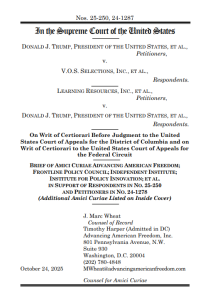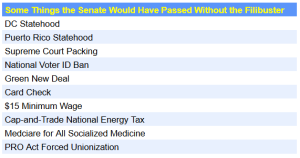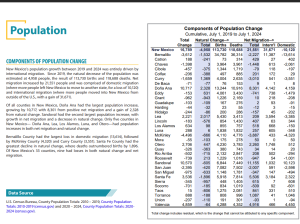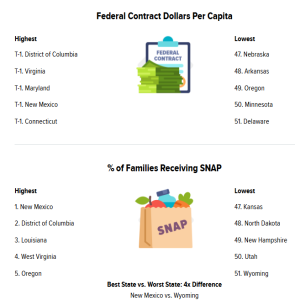Recently, New Mexico’s Democratic Governor Michelle Lujan Grisham announced a new plan for taxpayers to fund “free” child care for all New Mexicans, regardless of their income levels. The announcement generated favorable news coverage in outlets across the nation. Governing called it “a lesson for lawmakers in other states facing the fiscal challenges of providing services families need amid diminishing federal aid.”
New Mexico’s initiative is noteworthy for several reasons, one of them being that the state has had a taxpayer-funded “free” child-care program in place since 2022. Until now, however, that program has been limited to families with incomes up to 400 percent of the federal poverty level.
We looked up the federal poverty guidelines and found that 400 percent of the poverty level (the current income cap) allows a family of three to earn up to $106,600 annually. What the governor doesn’t want people to know is that, according to the U.S. Census Bureau, the median household income in New Mexico is $62,268. That means that the new “free” child-care entitlement is for the benefit of even the most well-off New Mexicans.
Child care isn’t cheap, especially once the government gets involved. The existing child-care assistance programs cost New Mexicans $463 million each year. Making the program universal for residents will cost another $120 million annually, with an additional one-time capital expenditure of $20 million.
Why would a “progressive” governor of one of America’s poorest states decide to allocate considerable resources to people at the highest income levels with a new child-care subsidy?
Here is our hypothesis: Lujan Grisham has been in office since 2019, and she has failed miserably to improve conditions for children in the state. With only about a year left of her term, she is looking for positive headlines in mainstream outlets that don’t know anything about New Mexico.
What failures should we be talking about?
For starters, the 2025 edition of the Annie E. Casey Foundation’s annual “Kids Count” report ranked New Mexico last nationally in terms of conditions for children. Historically, New Mexico has been near the bottom of this report, but under Lujan Grisham, the state has fallen further behind. The Annie E. Casey Foundation could not be classified as conservative, so it is particularly shocking that a group that is broadly aligned with her “progressive” outlook would give her efforts such abysmal rankings.
According to the U.S. Census Bureau, New Mexico had the second greatest percentage population decline in the nation of its 0–18 age group between 2020 and 2024. New Mexico saw a decline of 5.9 percent, while only Illinois fared worse at 6.1 percent.
When she took office, Lujan Grisham pledged that New Mexico would embark on a “moonshot for education.” Sadly, in both 2022 and 2024, the last two cycles of the National Assessment of Educational Progress, New Mexico scored worst in the nation in fourth grade reading and math, and in eighth grade reading and math. Worse, this failure has taken place at a time when money is simply not a problem.
Although it is poor compared to most other states, New Mexico has been enjoying an unprecedented oil and gas boom for nearly a decade. This boom has catapulted the state into second position nationally in oil production and offered the state a nearly unprecedented opportunity to spend money however Lujan Grisham and the state’s Democrat-controlled legislature see fit.
Lujan Grisham and the state legislature have increased government spending on education by about 70 percent. The state’s education system — ranked dead last nationally — is purportedly supplemented by its abysmally run Children Youth and Families Department (CYFD). In New Mexico, CYFD’s supposed role is responding to reports of child abuse and neglect as well as providing services like foster care and adoption to ensure that children are in safe, permanent homes.
But in early September of this year, New Mexico’s CYFD Secretary Teresa Casados abruptly retired after five children died under state care, which drew fierce criticism and calls for Lujan Grisham to remove her. Even members of Lujan Grisham’s own Democratic Party have spoken out. Attorney General Raúl Torrez launched an investigation in the wake of the death of a four-month-old child in June, saying that “this is just another example of the state failing in its most fundamental obligation.”
New Mexico is already one of a small handful of states that offer taxpayer-funded universal pre-K for three- and four-year-olds. Since the beginning of the 2025 school year, the state has offered this additional benefit at the expense of taxpayers. Of course, New Mexico has had a limited taxpayer-funded pre-K program for over a decade, but as noted above, the state’s children remain dead last in education. We have yet to find a study showing that the program has made a positive difference in long-term outcomes for the children enrolled.
In fact, a cynic might believe that Lujan Grisham’s plan to make child care universal is nothing more than a thinly veiled attempt to garner positive headlines while simultaneously diverting attention from her many failures, particularly those regarding child welfare. This is particularly frustrating because Lujan Grisham has faced few financial constraints in her years serving as governor, thanks to New Mexico’s oil and gas boom.
Ultimately, this expansion of the state’s already generous “free” child-care program to wealthy New Mexicans may generate positive headlines about Lujan Grisham. But New Mexico’s track record of competently delivering services to help its children is poor to say the least.







